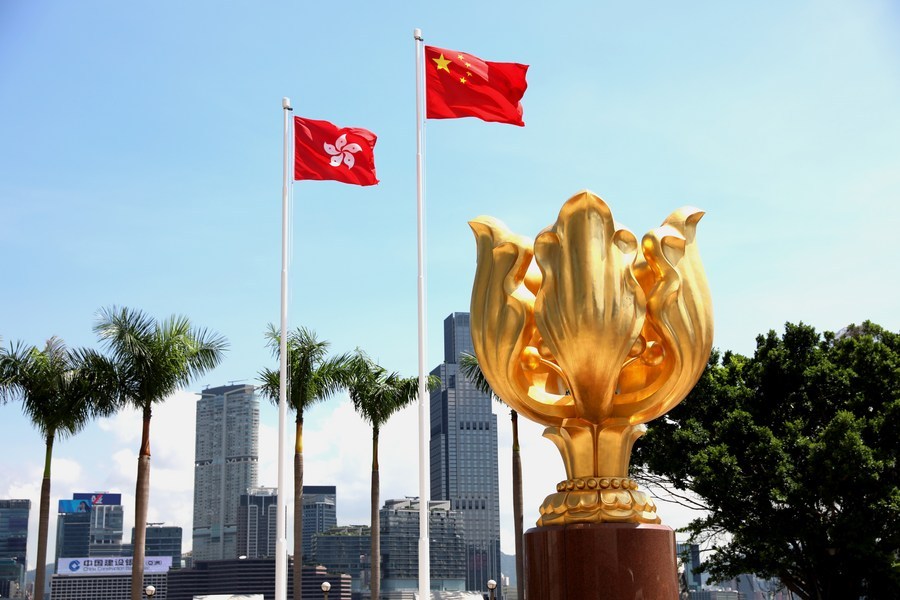
Photo taken on July 14, 2020 shows the Golden Bauhinia Square in Hong Kong, July 14, 2020. [Photo/Xinhua]
The new chairman of the Hong Kong Bar Association, Paul Harris, claimed immediately after being elected that the earlier arrest of 55 individuals by the Hong Kong police on charges of subversion under the special administrative region's National Security Law is "deliberate intimidation of the democratic movement".
It seems that he is claiming that they should not face trial for breaking the law simply because of who they are.
These members of the so-called democratic movement he spoke of have been advocating changes to the political system in Hong Kong for years, even decades in some cases. Yet they had never gotten into trouble. It was only after they organized or participated in a plot last summer called "35-plus primaries", with the objective of hijacking the governance of Hong Kong and holding residents' well-being hostage, that they are facing trial.
That they have been charged and are to be tried for subversion is in accordance with the law given what they were seeking to do. That they identify themselves as members of the opposition camp is not the issue.
In its crusade against the National Security Law, the Bar Association under former chairman Philip Dykes questioned the National People's Congress Standing Committee's power to enact a national security law for Hong Kong, citing Article 23 of the Basic Law.
To suit that argument, the likes of Dykes have deliberately misinterpreted Article 23, which stipulates that Hong Kong is constitutionally obliged to enact "on its own" laws to safeguard national security, willfully ignoring the fact that the NPC Standing Committee has the legal power to enact a national security law for Hong Kong.
The Bar Association's new chief has demonstrated alarming ignorance of the law as well as arrogance in stating that he will lobby the Hong Kong SAR government to amend some of the provisions in the security law. The National Security Law for the Hong Kong Special Administrative Region is a national law enacted by the NPC Standing Committee and the local government of Hong Kong SAR has no power to amend it.
Both the former and the new chairmen of the Bar Association recently talked about their aspirations for a reopening of communication between the group and Beijing. But that will be wishful thinking if they insist on operating as a highly politicized organization advocating political ideas in contradiction with Hong Kong's constitutional status as a special administrative region of the People's Republic of China.
No one can be above the law. As legal practitioners they should know that better than anyone else.


